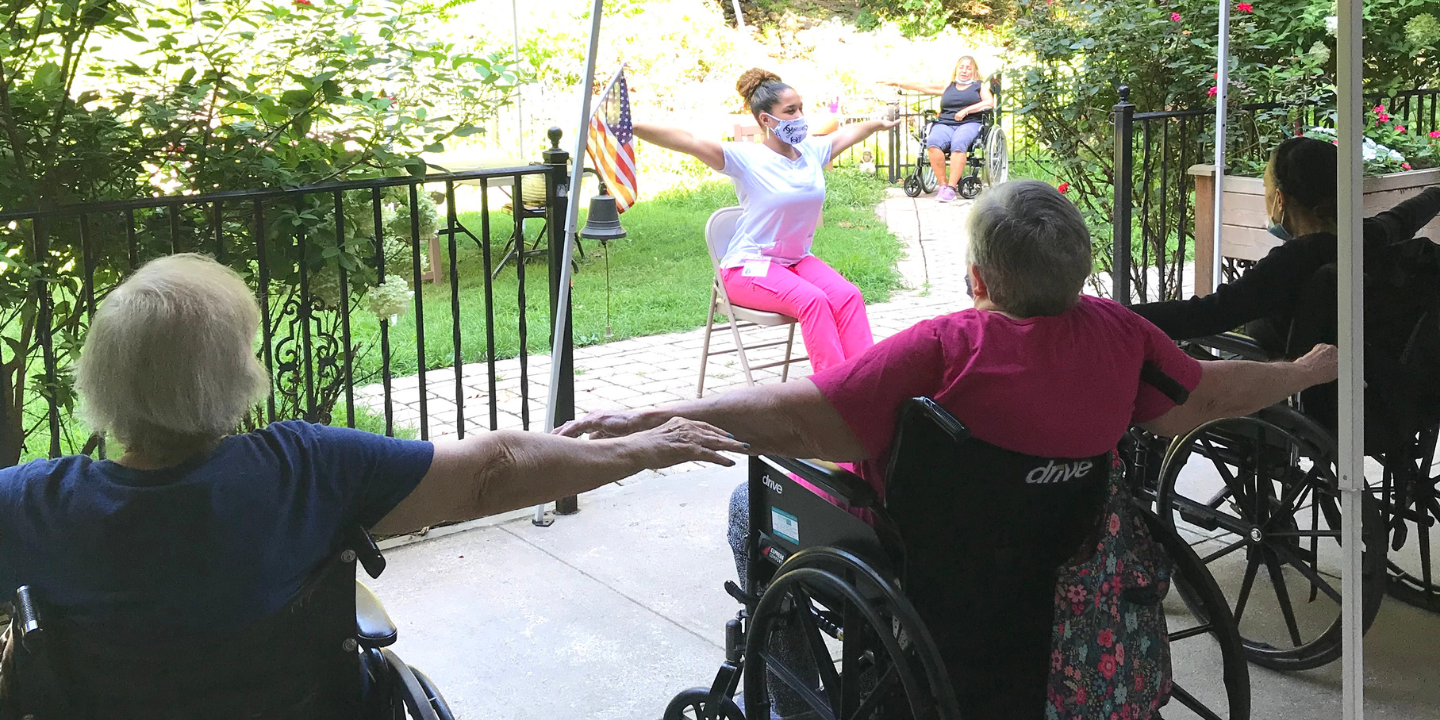Getting a good night’s sleep is essential to overall well-being. But, as we age, maintaining sleep health in seniors can become more difficult. Changes in sleep patterns are a natural part of aging. Many older adults find they wake more often at night and feel less refreshed in the morning.
At the Methodist Home for Nursing and Rehabilitation, we recognize the important connection between sleep and healing, especially for those on the road to recovery during a short term rehabilitation stay.
Here are 7 tips for naturally supporting rest and sleep health in seniors to promote overall wellness.
#1 – Following a Consistent Sleep Schedule
One of the best ways to encourage better sleep is to keep a steady daily rhythm. Going to bed and waking up at the same time each day can help regulate the body’s internal clock and make falling asleep easier.
For seniors, this kind of structure can reduce nighttime restlessness and support deeper, more restorative sleep. It also promotes a sense of calm and predictability. This is especially helpful during short term rehabilitation, when a reliable structure supports both physical healing and emotional well-being.
#2 – Creating a Comfortable Sleep Environment
Our sleep environment also plays a significant role in how well we rest. A quiet, dark, and cool room can make it easier to fall and stay asleep. Comfortable bedding, soft lighting, and limited noise each contribute to a more restful atmosphere.
With private rooms available for all patients at the Methodist Home, everyone can enjoy peaceful surroundings designed to encourage relaxation and uninterrupted rest.
#3 – Staying Active During the Day
Engaging in light activity throughout the day supports physical health and can help improve sleep at night.
Whether participating in rehabilitation sessions with therapists, enjoying various recreational activities held within the facility, or spending time outdoors, staying active helps reinforce natural sleep-wake cycles.
Seniors who are less active during the day may find it harder to fall asleep at night, especially if they are taking frequent naps that reduce the body’s natural need for rest.
#4 – Avoiding Stimulants and Late-Night Snacks
What we consume in the evening can also affect sleep. Avoiding coffee and sugar later in the day is a simple way to support a better night’s rest.
Eating a light dinner and skipping snacks close to bedtime can prevent digestive discomfort. A warm cup of decaffeinated herbal tea or a light snack earlier in the evening can be a soothing addition to your bedtime routine, helping promote deeper, uninterrupted sleep.
#5 – Enjoying a Relaxing Bedtime Routine
Winding down before bed with a relaxing nighttime routine can signal to the body that it’s time to rest. Calming activities such as reading, listening to soothing music, or enjoying quiet conversation can help set the stage for sleep.
Other evening activities to prepare for sleep include gentle stretching or deep breathing exercises to promote relaxation and comfort before bedtime.
#6 – Spending Time in Natural Light
Exposure to natural light during the day helps regulate the body’s internal clock and improve sleep at night. Morning light is especially beneficial for supporting circadian rhythms, whether through time outdoors or near a sunny window.
With our common areas and beautiful garden spaces, the Methodist Home offers many ways for patients to enjoy natural light throughout the day.
#7 – Letting Caregivers Know When Sleep Is Difficult
Sleep challenges are common among seniors, and they are nothing to be embarrassed about. Our staff always encourages open communication, so we can help you make any needed adjustments to support better rest and overall health.
How Can We Support You?
Sleep is a critical part of healing, especially for patients recovering from illness, injury, or surgery during a short term rehabilitation stay.
From comfortable accommodations to thoughtful daily routines, our team is dedicated to creating the best possible environment to promote restful sleep and successful recovery.
If you or a loved one are considering a short-term stay in a skilled nursing facility, we’re here to help. Contact us today to learn more about our short term rehabilitation services.

